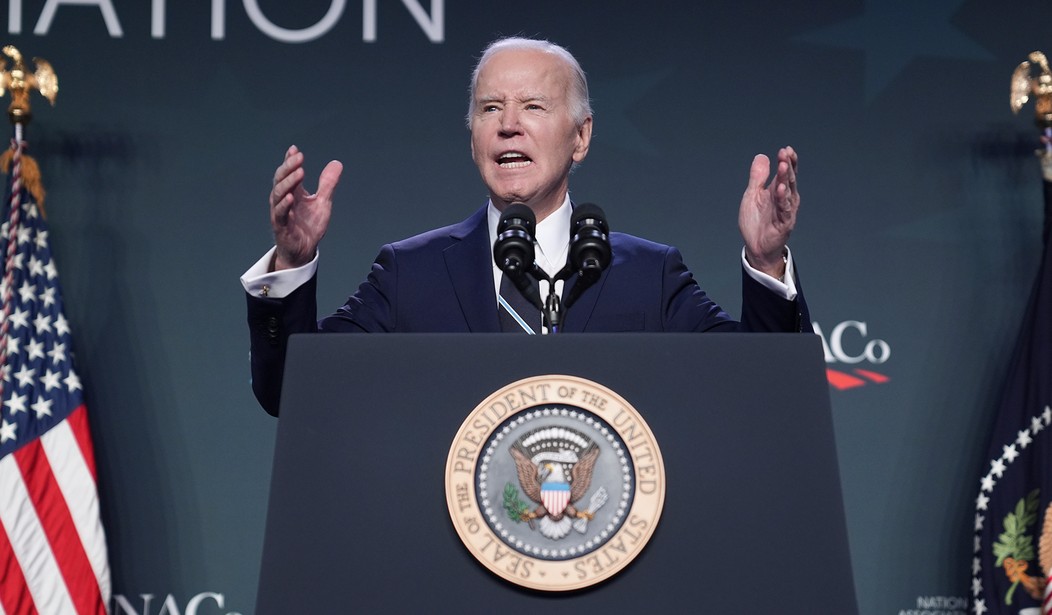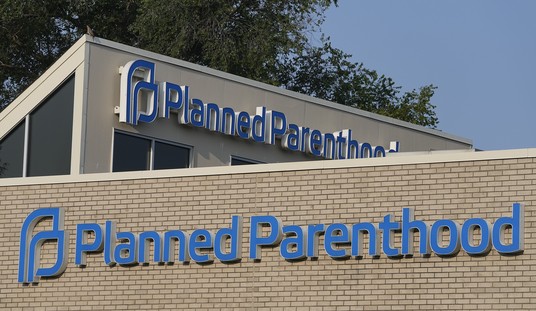In the latest volley of policy proposals that seem more rooted in populist rhetoric than economic knowledge, President Joe Biden's budget plan to hike the corporate income tax rate from 21% to 28% strikes me as particularly misguided. This move, ostensibly aimed at ensuring a "fair share" of contributions from corporate America, is a glaring testament to a simplistic and all-too-common type of economic thinking that already hamstrings our nation's competitiveness, stifles innovation, and ultimately penalizes the average American worker and consumer.
Beyond the president's class warfare rhetoric, the lure of putting his hands on more revenue is one of the factors behind the proposal. Biden likes to pretend he is some sort of deficit cutter, but his administration is the mother of all big spenders. He's seeking $7.3 trillion for next year without acknowledging the insolvency of Social Security coming our way or addressing what happens when Congress makes the Republican tax cut permanent in 2025 for people earning less than $400,000 a year.
Unfortunately, no fiscally irresponsible budget is complete without soothing individual taxpayers by promising to tax corporations. Never mind that the burden of corporate income tax hikes isn't shouldered by corporations. Yes, corporations do write the checks to the Internal Revenue Service, but the economic weight will be partially or fully shifted to others, such as workers through lower wages, consumers through higher prices, or shareholders through lower returns on investment. That means that many taxpayers making less than that $400k will be shouldering the cost of the corporate tax hike.
It is worth expanding on the fact that much of a corporate tax increase will be shouldered specifically by workers. A recent Tax Foundation article, for instance, explained that "a study of corporate taxes in Germany found that workers bear about half of the tax burden in the form of lower wages, with low-skilled, young, and female employees disproportionately harmed."
Biden's planned tax hike would raise revenue for sure. Kyle Pomerleau at the American Enterprise Institute told me that it would raise roughly $1 trillion over a decade. However, it will do it in the most damaging way possible.
Recommended
Indeed, it is well-established by the economic literature that increasing corporate taxes is the most economically destructive method due to its impact on incentives to invest. Investments that were previously feasible at the lowest rate of capital are now out of reach. Firms forgo machinery, factories, and other equipment, reducing their capital stock. That in turn reduces productivity, output, and overtime wages.
The good news is that the reverse is also true. That's what the Republicans did in 2017 when they cut the federal corporate tax rate from 35% to 21% while broadening the tax base. Chris Edwards at the Cato Institute recently noted that the move increased investments and wages as one would hope -- and it also managed to boost federal corporate tax collections from $297 billion in 2017 to a projected $569 billion in 2024.
While this spike was attributed to temporary factors -- the revenue is anticipated to decrease to $494 billion in 2025 -- it also reduced tax avoidance from firms who repatriated much of the revenue they used to keep abroad. Instead of avoiding higher tax rates, they invested more in America and boosted wages along the way.
In addition, for all the concerns about fairness expressed by the administration to justify its tax hike, the corporate tax is quite unfair. Profits are already subject to taxation at the individual level when distributed as dividends or realized as capital gains. Increasing the corporate tax rate will exacerbate the issue of double taxation, distorting investment decisions and reducing economic efficiency, not to mention encouraging aggressive planning for more tax avoidance.
Last, the administration's plan ignores one of its usual priorities: the fact that many U.S. companies must compete on the international stage. Raising the corporate income tax at home makes them less competitive abroad. According to the Cato Institute's Adam Michel, if Biden is successful in raising the corporate income tax to 28%, the U.S. would have the second? Highest such rate among the market-oriented democracies that make up the OECD. America would instantly become less attractive for multinational corporations and mobile capital.
In an era where economic literacy should guide policymaking, reverting to such tax hikes is a step backward -- a misstep we can ill afford amid the delicate dance of post-pandemic recovery and an increasingly competitive global economy.

























Join the conversation as a VIP Member